Should you ever buy used appliances? Experts share what you should and shouldn't buy second-hand
Used appliances can save you money and reduce your environmental impact, but how reliable are they?
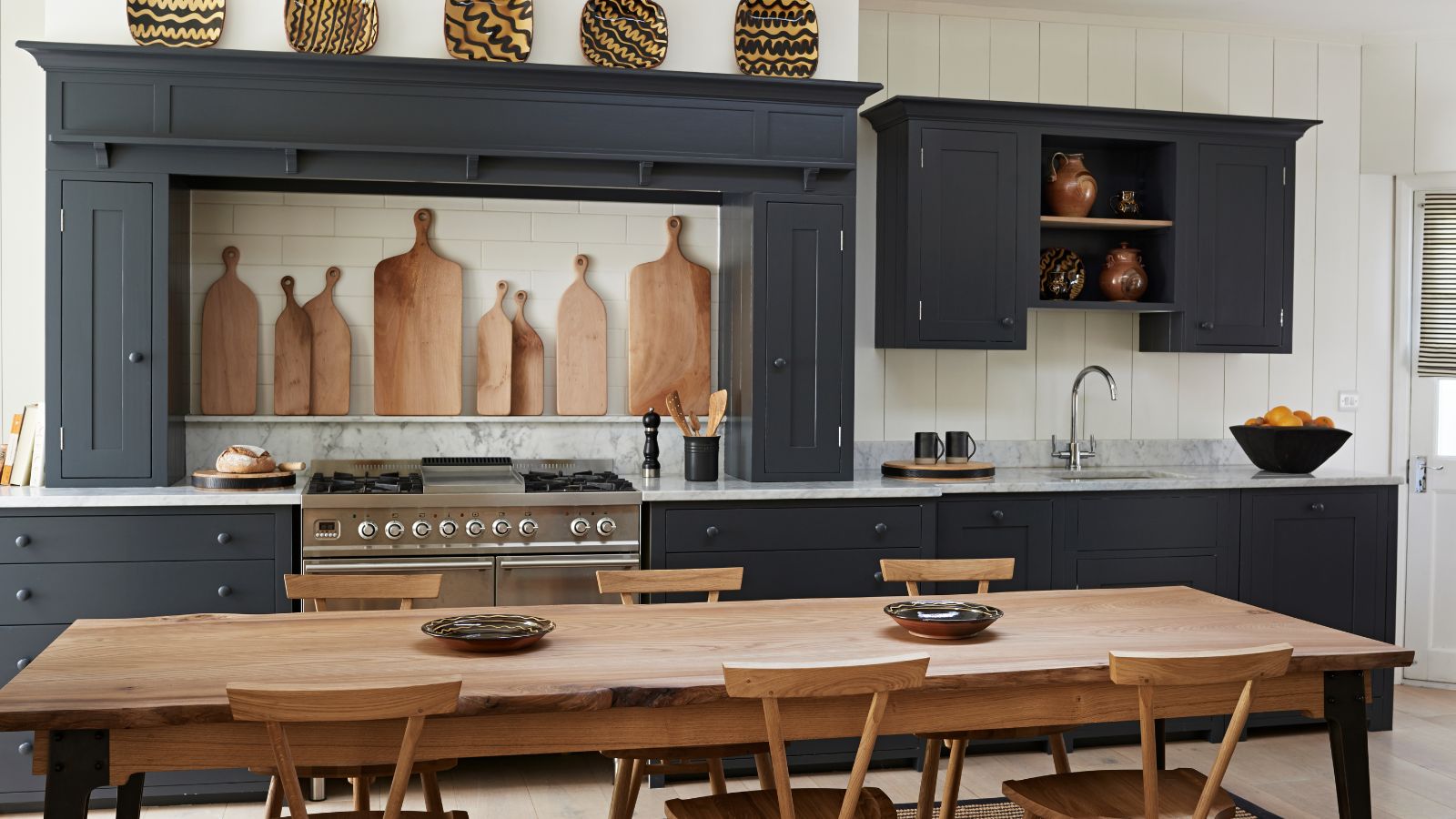
Every appliance you've ever owned still exists on this planet. It's a worrying thought, and one that compelled me to reconsider what I really need and how I shop for new home goods in the future.
Here, I have explored what used appliances are safe to buy secondhand and are a worthy eco home improvement to consider. After reading the UN Global E-Waste Monitor report, that in 2022, the world produced a record 62 million tonnes of e-waste, an 82% rise from the year before, it prompted me into action.
I have spoken with seasoned appliance experts to get the full lowdown on the benefits and drawbacks of buying used appliances, so when you start to see signs it's time to replace old appliances, you'll know where you can save money and choose a more environmentally-conscious choice.
When to buy used appliances
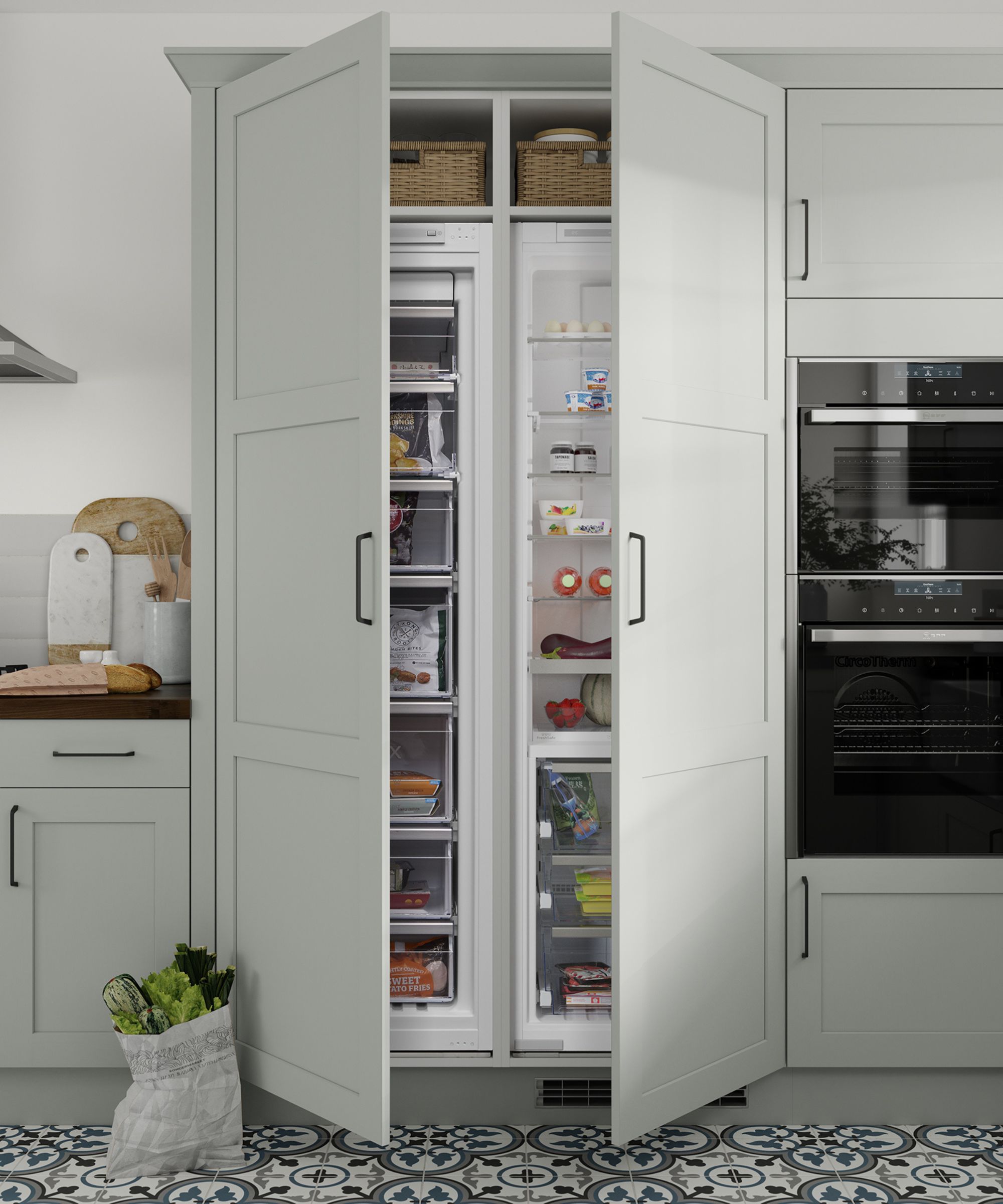
Fridges, small kitchen appliances, cookers, power tools and gardening equipment are examples of appliances you can safely buy used.
While it's not recommended to buy used appliances every time, doing so more often will benefit the planet and the amount of money you spend on electrical goods each year.
'It's a safe switch in behavior and a real win-win for your pocket and the planet,' says Andrew Carr, product designer and founder of Bebello. 'You can save 50% on average with every purchase.'
The environmental impact of manufacturing should not be ignored. Manufacturing accounts for about a fifth to a quarter of global emissions according to the World Economic Forum, and while much of this will be from industries outside of the appliance market, choosing second-hand appliances more often is a simple sustainable household swap that can massively reduce this footprint.
And that's not to say that used appliances necessarily come with a sacrifice of performance. 'Lots of people replace appliances long before their actual lifespan is up, just to experience an upgraded model or some new features they’ve seen advertised,' shares Carr Lanphier, home improvement expert and CEO of Improovy.
When deciding which appliances to buy used, it's helpful to think of them in terms of low-frequency and high-frequency use, Andrew recommends. 'Low-frequency use items like power tools, gardening equipment, and small kitchen appliances are ideal used purchases. They're used so infrequently that most will rarely reach their designed end-of-life,' he explains.
The same goes for those trendy appliances that never seem to get used as much as we hope. 'Appliances that could be considered 'fads' or 'seasonal' are another second-hand purchase to consider, because they often never make it into part of a daily routine, get used once or twice a year and spend most of their life in the cupboard,' Andrew explains. Think: bread makers, ice cream makers and pizza ovens.
Appliances with moving parts are more likely to break and require more maintenance to keep bills low, whereas those without motors are generally safer to keep long term and buy used, as Brian Johnson, seasoned appliance expert from My Job Quote explains:
'Household items such as a cooker, oven or fridge/freezer which do not have as many moving parts are often a safer bet. This is not to say that they don't have parts that can wear out, break or fail but they are more likely to last a little longer than appliances with moving parts.'
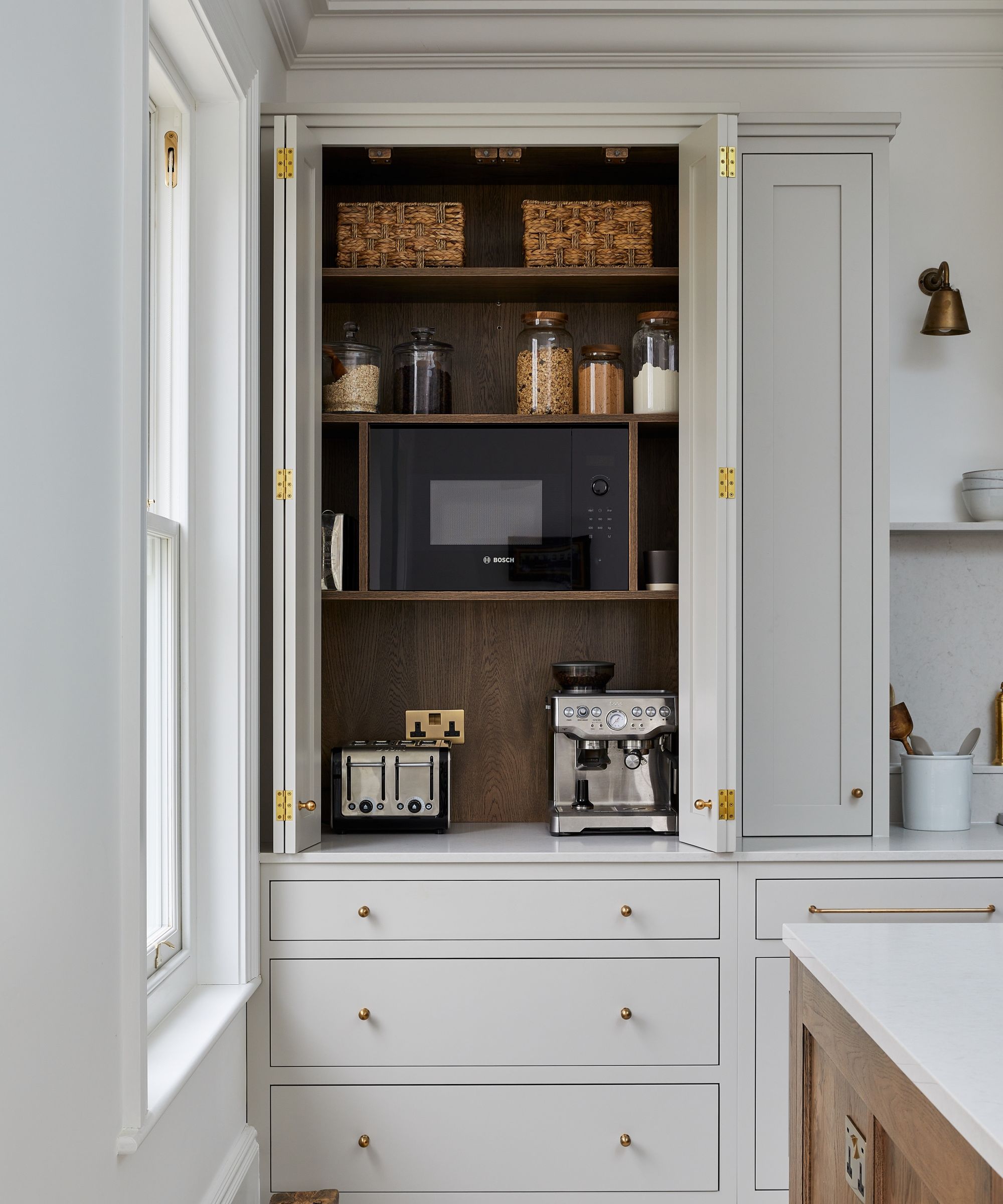
When shopping second-hand, make sure you see the appliance in operation first. There are countless reasons why an appliance might not work properly so you'll need some security to know you're not buying a dud. This is especially important if you're buying from an individual or an online marketplace.
A more reliable way of buying used appliances is to opt for a refurbished model. 'A refurbished appliance is one that has been used but has been repaired and checked, making it suitable for resale,' Brian explains. Great examples are the Dyson renewed program or LG refurbished, where you can save on old home goods that have been thoroughly checked, repaired and renewed, often to the same standard as a brand-new model. You can find similar outlets at retailers like Walmart Restored and Best Buy Refurbished.
This is actually what consumer finance expert Andrea Woroch recommends above all else: 'Buying a used appliance from another consumer or from a garage sale is ill-advised since you don't know what you're getting, the extent of any damage or cost of potential repair and there is absolutely no warranty to protect your purchase.'
'You are much better off buying from a reputable retailer that offers a certified refurbished appliance. With these, retailers promise that any damaged or improperly functioning appliance has been restored to work and look like new, and they will also back this up with a warranty,' she adds.
You can also consider renting appliances for niche tasks like pressure washers for clenaing your or industrial carpet cleaners for when exploring how to deep clean a carpet.
When to buy new appliances
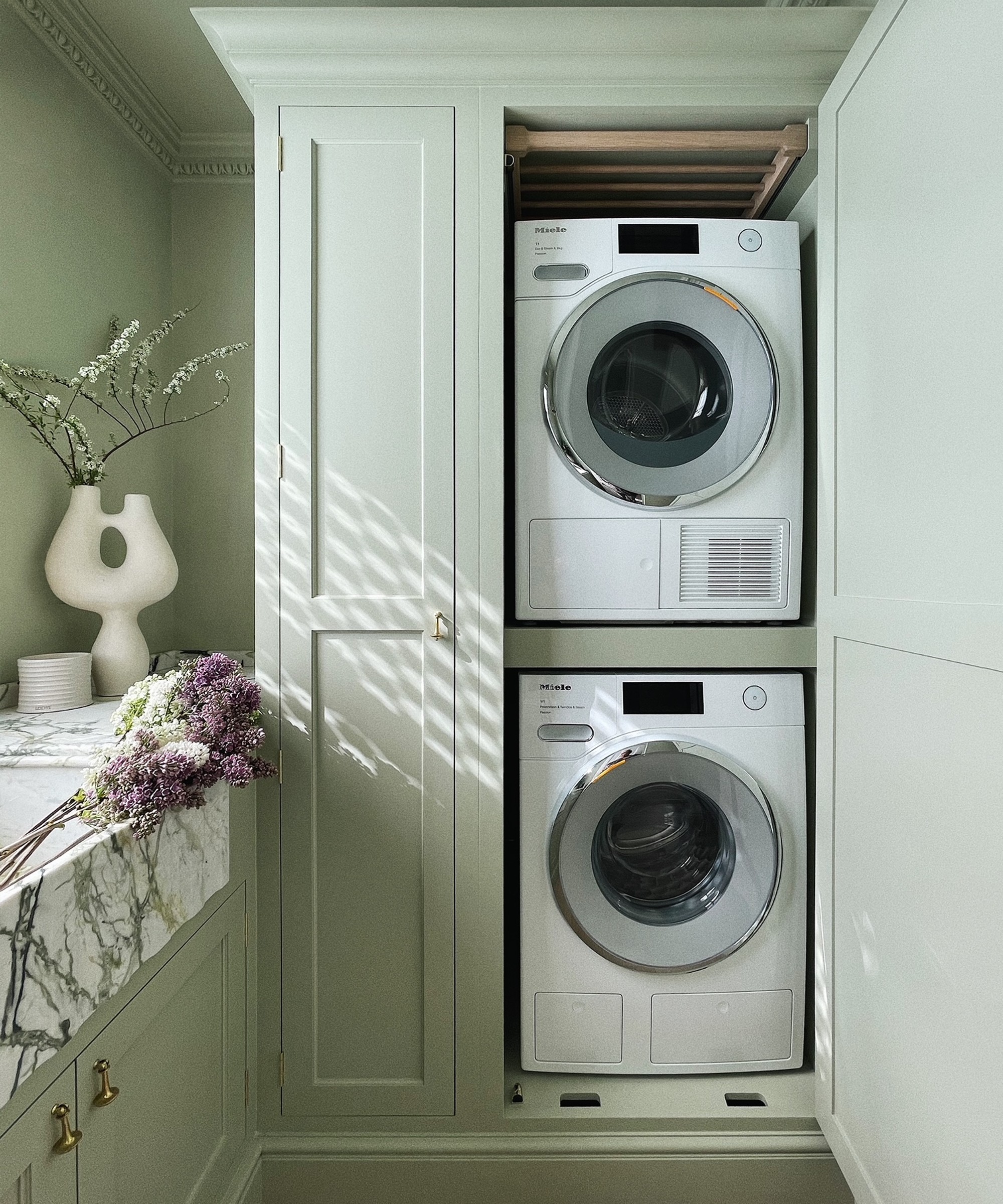
The main benefit to buying new appliances is convenience. 'Generally appliances arrive in your house with in 1-2 days of ordering, and are protected by a guarantee for typically 1-2 years. If there is a problem within that time period, they can be replaced with little to no question asked,' Andrew shares.
A trusted warranty is the real winner here. Appliances break all the time, like when a vacuum losing suction power or a washer leaking water from underneath. Having that peace of mind for a couple of years guarantees that you won't be spending on a replacement within that time.
And when shopping for appliances with moving parts, or those that are used frequently, you might be better off buying brand new. 'Be aware that the ones that have moving parts such as a washing machine, dishwasher or tumble dryer, are more likely to go wrong. Seals can fail, drive belts can wear out and pumps can become blocked and none of these things will be visible when you view a used appliance,' explains Brian.
This is also true for vacuum cleaners, particularly the best cordless vacuums that are taken apart and reassembled on a regular basis. They are high-impact appliances that rub against the floor and see masses of debris and dust flow through at high speeds. They're also often not well looked after, as people vacuum broken glass or powders that can damage filters, so if you're shopping for the best vacuum cleaner, it's a good idea to buy new.
This isn't true for all vacuums however. The best Miele vacuums for example are famous for lasting for years, often longer than a decade, so if you can see the vacuum in action and test its suction power, this could be a great way to save.
And finally, the potential of broken or worn-down parts in used electrical appliances poses a potential safety hazard. New appliances go through rigorous electrical tests to ensure they're safe for the consumer market, whereas used appliances don't – excluding refurbished models, which do. Be cautious if shopping second-hand and always find out as much information about the appliance as possible.
FAQs
Do appliances last as long as they used to?
In short, no. The build quality can often be better with older models, as manufacturers in the past focused more on longevity and durability. More recently, we've seen a shift as products are made with a shorter lifespan to incentivize more frequent purchases. So, buying a used, older appliance might actually last longer than a brand-new one.
Do more expensive appliances last longer?
While it's true that the price often reflects the use you'll get out of an appliance, this isn't always the case. Some brands like Miele, Bosch and Whirlpool offer expensive goods because they're known to last as long as you'd hope. But other premium appliances like the best Dyson vacuums are expensive because they're packed full of features, while not necessarily having that same longevity.
Next, learn these simple appliance placement rules for harmony in the kitchen.
Sign up to the Homes & Gardens newsletter
Design expertise in your inbox – from inspiring decorating ideas and beautiful celebrity homes to practical gardening advice and shopping round-ups.

Dan is the Home Tech Editor for Homes & Gardens, covering all things cleaning, smart home, sound and air treatment across the Solved section. Having worked for Future PLC since July 2023, Dan was previously the Features Editor for Top Ten Reviews and looked after the wide variety of home and outdoor content across the site, but their writing about homes, gardens, tech and products started back in 2021 on brands like BBC Science Focus, YourHomeStyle and Gardens Illustrated.
They have spent more than 200 hours testing and reviewing vacuums for Homes & Gardens, and have even visited Dyson's engineering labs for the full low-down of the ins and outs of our trusty cleaners.
Dan has a BA in Philosophy and an MA in Magazine Journalism. Outside of work, you'll find them at gigs and art galleries, cycling somewhere scenic, or cooking up something good in the kitchen.
You must confirm your public display name before commenting
Please logout and then login again, you will then be prompted to enter your display name.
-
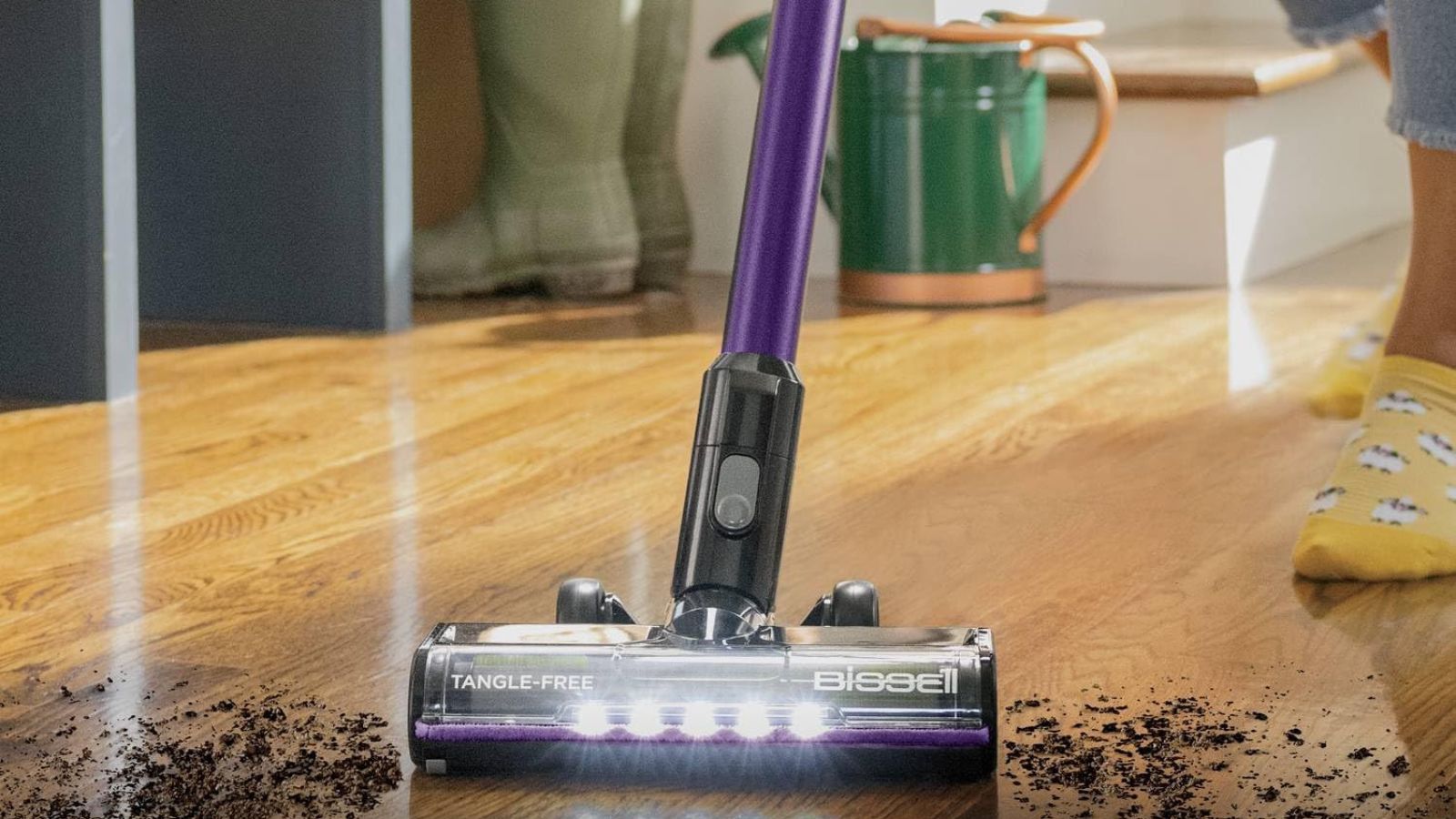 Bissell CleanView XR Pet 300W Stick cordless vacuum review – it's a great budget vacuum, but by no means perfect
Bissell CleanView XR Pet 300W Stick cordless vacuum review – it's a great budget vacuum, but by no means perfectLow price point, but with the cleaning performance to match it
By Camryn Rabideau
-
 Kevin Costner uses the 'ultimate color choice for interiors' in his kitchen – it masters a top 2025 trend that's 'guided by the calm of nature'
Kevin Costner uses the 'ultimate color choice for interiors' in his kitchen – it masters a top 2025 trend that's 'guided by the calm of nature'The Yellowstone actor embraces a subtle yet soothing trend that's influencing how we decorate this year, but it will look just as perfect in 100 years
By Megan Slack